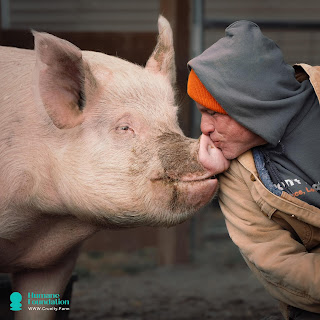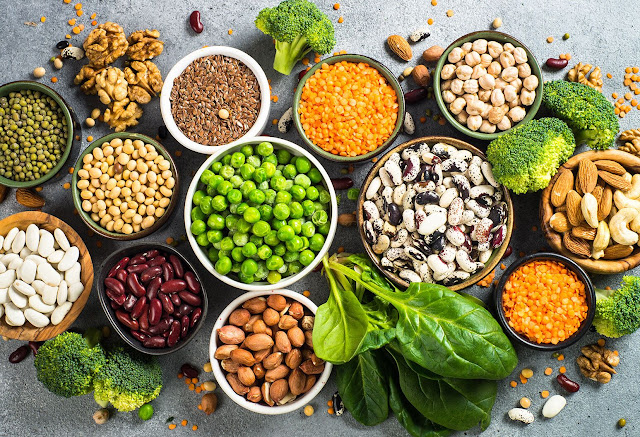Unveiling the Environmental Toll of the Meat Industry on Climate Change: A Call to Action
Introduction: In the intricate tapestry of global food systems, the meat industry stands as both a pillar of sustenance and a harbinger of environmental repercussions. As we confront the pressing realities of climate change, it becomes imperative to scrutinize the intricate nexus between meat production and its ecological footprint. This article endeavors to unravel the multifaceted dimensions of the meat industry's contribution to climate change, spotlighting the environmental costs entwined with its operations and consumption patterns.
- Greenhouse Gas Emissions: A Looming Threat
At the crux of the meat industry's climate impact lies its significant contribution to greenhouse gas emissions. Livestock, particularly ruminants like cattle, emit substantial amounts of methane through enteric fermentation—a natural digestive process. Methane, with its potent heat-trapping capabilities, holds approximately 25 times the warming potential of carbon dioxide over a century. Moreover, ancillary activities such as feed cultivation, transportation, and processing further compound carbon emissions, underscoring the industry's formidable carbon footprint.
Despite incremental strides in emission reduction technologies, the sheer scale of global meat production perpetuates its status as a primary contributor to atmospheric greenhouse gas concentrations. Addressing this pivotal issue mandates holistic strategies spanning the entire meat supply chain, from farm to fork, to curtail emissions and foster sustainability.
- Deforestation and Land Degradation
The expansion of the meat industry often serves as a catalyst for deforestation and land use change, particularly in ecologically sensitive regions. Forests, acting as vital carbon sinks, are felled to make way for pasturelands and feed crop cultivation, releasing stored carbon into the atmosphere and diminishing biodiversity. Nowhere is this more pronounced than in regions like the Amazon rainforest, where rampant deforestation driven by livestock farming threatens the very fabric of biodiversity and ecosystem resilience.
Moreover, the proliferation of monoculture crops, primarily for animal feed production, exacerbates land degradation and soil erosion, further exacerbating environmental degradation. As the demand for meat continues to burgeon, reconciling the industry's expansion with conservation imperatives poses a formidable challenge that demands urgent attention and concerted action.
- Water Scarcity and Pollution: A Precious Resource at Risk
Water, a finite and indispensable resource, lies at the crux of agricultural production, with the meat industry being a voracious consumer. From livestock hydration to irrigation for feed crops, meat production exerts immense pressure on freshwater reserves, exacerbating water scarcity concerns globally. Furthermore, intensive farming practices often result in water pollution through runoff laden with nutrients, pathogens, and agrochemical residues, imperiling aquatic ecosystems and human health alike.
The proliferation of industrial-scale feedlots and intensive farming operations exacerbates these challenges, accentuating the industry's environmental footprint and escalating competition for dwindling water resources. Mitigating these risks demands concerted efforts to promote water-efficient practices, minimize pollution, and safeguard freshwater ecosystems for future generations.
- Biodiversity Loss and Ecosystem Fragmentation
The relentless expansion of the meat industry exacts a heavy toll on biodiversity and ecosystem integrity, driving habitat destruction and fragmentation worldwide. Land clearance for pasturelands and feed crops displaces indigenous flora and fauna, disrupts ecological balance, and diminishes the resilience of natural ecosystems. Moreover, the intensification of agricultural practices and widespread pesticide use further imperil biodiversity, exacerbating the extinction crisis gripping our planet.
Protecting biodiversity and restoring degraded ecosystems necessitates a paradigm shift towards regenerative agriculture and land management practices that prioritize ecological resilience and biodiversity conservation. By safeguarding habitats, promoting sustainable land use practices, and embracing agroecological approaches, we can stem the tide of biodiversity loss and foster a more harmonious relationship between agriculture and nature.
- Public Health Ramifications: Beyond the Plate
In addition to its environmental toll, the meat industry's practices can have profound implications for public health, amplifying the risk of zoonotic disease emergence and transmission. Intensive livestock farming creates ideal conditions for the spillover of pathogens from animals to humans, fostering the emergence of novel infectious diseases with pandemic potential. Furthermore, the overuse of antibiotics in livestock production contributes to the proliferation of antibiotic-resistant bacteria, posing a grave threat to global public health.
Addressing these multifaceted challenges demands a holistic approach that integrates principles of One Health, recognizing the interconnectedness of human, animal, and environmental health. By promoting sustainable farming practices, enhancing disease surveillance and biosecurity measures, and fostering a shift towards plant-based diets, we can mitigate the public health risks associated with meat consumption and build a healthier, more resilient future for all.
Conclusion
The meat industry's profound contribution to climate change and environmental degradation underscores the urgent need for transformative action to reconcile food production with planetary health. As we navigate the complexities of a warming world, fostering sustainable and equitable food systems is imperative to safeguarding the health of both people and planet. By embracing innovation, promoting sustainable practices, and fostering greater awareness among consumers, we can pave the way towards a more resilient and sustainable future for generations to come. website: https://cruelty.farm/




Comments
Post a Comment